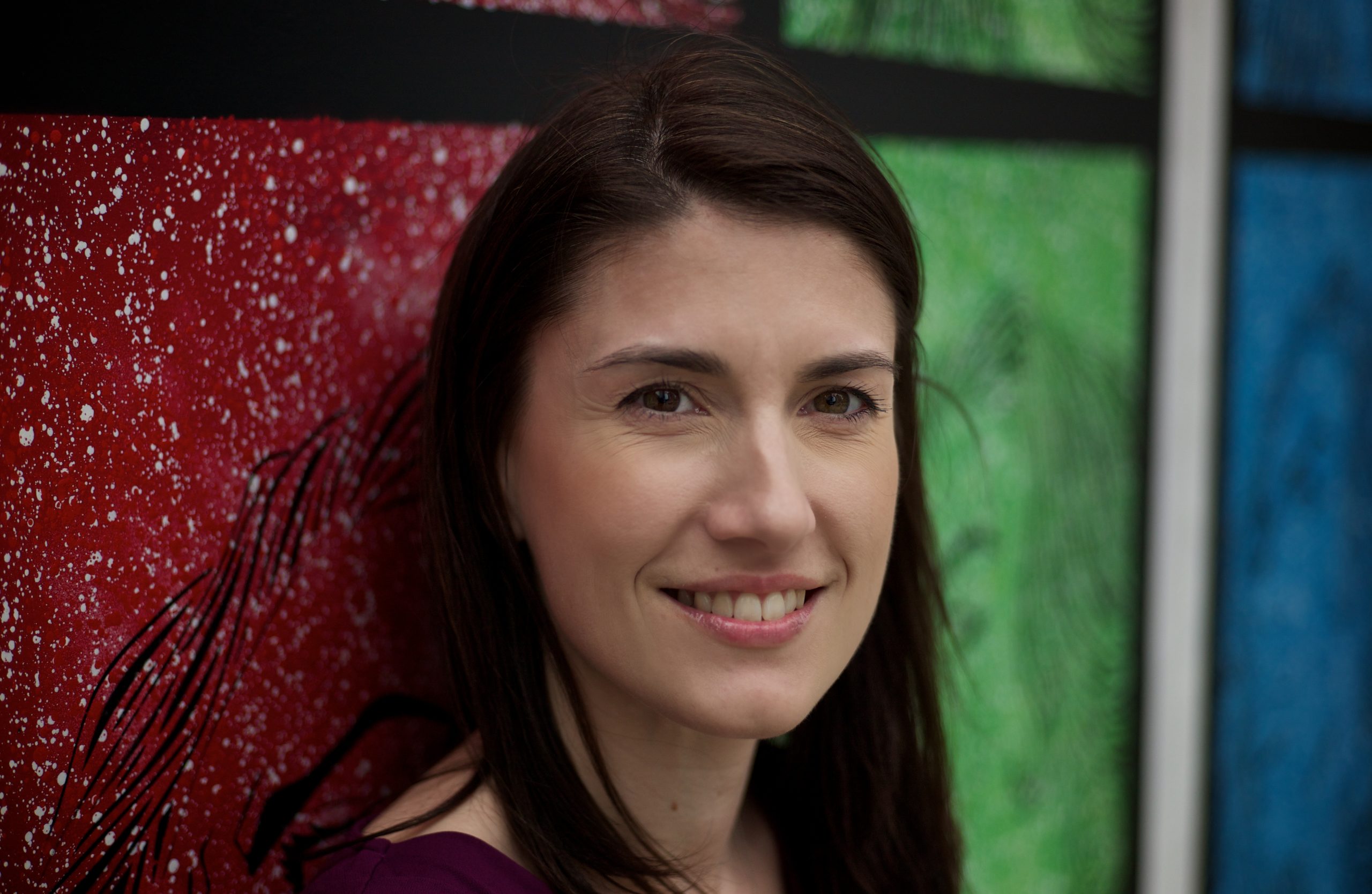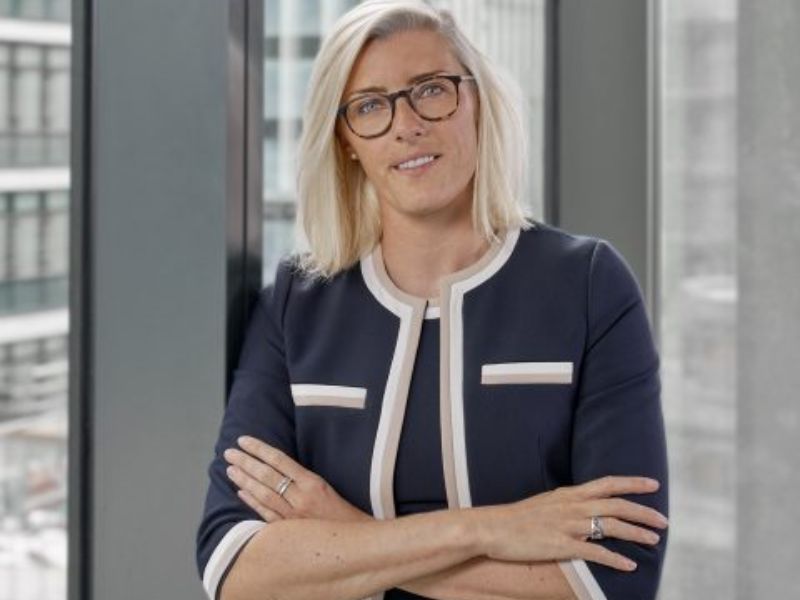I’m a full time composer for film, TV, theatre, adverts, games and online media.
I’ve credits on BBC and ITV documentaries and I’ve also composed music for adverts for CITV, Nissan and Land Rover. My most recent success is my first score for a feature-length animated film with Hollywood cast, StarDog and TurboCat, in cinemas nationwide on 6th December 2019.
Did you ever sit down and plan your career?
As a child, I always wanted to play in film orchestras but, being from a working class family, to me it felt like an unlikely dream! In the 90’s, I played violin in the Sheffield City Council’s children’s orchestras and received a subsidised place at Sheffield Music School on the weekends.
When I was very little, my sister and I would make up songs and plays together, which probably marked the start of my journey into writing and composing.
I studied Music at Sheffield University, but at the expense of my degree I spent probably a bit too much time crewing for student’s union theatre company (SutCo), doing production, make-up, lighting or operating sound. After graduating, I went on to Bournemouth University to do an MA in Music for the Moving Image. On returning home, I joined the Sheffield Filmmakers Network (now the South Yorkshire Filmmakers Network), whose focus was nurturing grassroots film talent.
Once back in Sheffield, I do remember sitting down to write a little mind mapping or strategy plan of how I was going to find composition work. It was really general, and ranged from the very simple (e.g. getting in touch with composers in Sheffield for advice) to pie-in-the-sky (e.g. save up and move to Los Angeles). Some of the middle steps I’ve forgotten, but one was to send out CDs and showreels on VHS (this was the early 2000s!). It was a total cold-calling move – I didn’t even contact any of them in advance, which probably wasn’t the smartest move – but I did, surprisingly, receive a few responses.
One of them led to work as a production assistant and sound recordist at a local film production office, just up the M1 in Barnsley. Alongside my production role, I’d also compose music for their short projects and documentaries, several of which were broadcast on the BBC. I became good friends with two of the editors which led to more composition work on their future broadcast feature documentaries, which then led to more projects with these documentaries’ producers and directors… and so on and so on.
Have you faced any challenges along the way?
I haven’t really noticed it consciously, but I am aware that not living in or near London might have slowed my career. I didn’t want to live in London due to the high cost of living there; I also worried I wouldn’t have the energy to both hold down a day job and really pursue composition work at the level I was aiming at. I really like living in Sheffield – it’s such a green city, so close to the countryside, and the pace of life is quite a bit slower than that of London!
Though not shy, I’m very introverted, and being in London is thrilling and exciting with all its work and life possibilities… but it’s also exhausting for me. I love visiting there for work, to see friends, and go to events, and it’s so quick on the train these days (around 2 hours) that thankfully I can still get a lot of the benefits without out having to move there.
I would love if my career to-date is proof-of-concept to any new composers – female or male – who live outside the Capital: it is possible to do challenging, fulfilling work and not have to live in one of the most expensive cities in the world.
Alongside film work, I do a lot of composition and sound design work in theatre, and back in the mid 2000s (like in media composition) a lot of the technical crew were men, so when I turned up and had some technical capabilities some were openly quite surprised, although many were very supportive when they could see I knew what I was doing.
There was definitely the sense of surprise that I was a woman who, alongside the creative work, also had technical skills. Looking back on it, I suppose I was sometimes treated with less belief and initial trust than my male peers and at the time I felt like I had to be an ‘ambassador’ for women composers. There was definitely a feeling that my work had to be perfect and I had to be extremely well prepared. I hear that this is quite a common theme for women in many male-dominated industries.
What has been your biggest achievement to date?
StarDog and TurboCat is the biggest simply in terms of scale – it’s the most music I’ve written for a single project, working over the longest period of time (it took around a year to write, in total), with the largest number of professional, live instrumental musicians. It’s the first film I’ve done that’s had a cinema release, with the largest number of big-name actors. It’s also been such a fun project to work on – every time the animation team would send over a new draft of the film, there’d be a little bit more of the animation rendered, or there’d be a new actor’s dialogue recorded – it’s so inspiring to work to such beautiful pictures and such a lovely, funny script and I hope I’ve done it justice.
What one thing do you believe has been a major factor in you achieving success?
Slow, steady, patient, quiet diligence – actively looking for opportunities; doing the best work you can on any project, large or small; being easy to work with whilst still standing up for what you feel is in the best interest of the project; maintaining relationships and, though the fear of putting yourself out there and being judged on your work is an ever-present companion, doing it anyway. I also try not to accept work that doesn’t align with my values, or anything that I just don’t feel I’m the right composer for, which has inadvertently on occasion led to me having the time to accept short turnaround work that was much more my cup of tea!
I’ve done lots of DIY self-promotion and marketing; however a lot of my most high profile and rewarding work has been through word-of-mouth. I can trace a large proportion of my film and theatre work back to people I met through Sheffield University’s Students Union, which is quite extraordinary when you think about it.
Having a good support network when inevitably the stress and frustrations take their toll is invaluable. My agent and publisher are both incredibly supportive, helpful, proactive people; I can count several of my composer colleagues as friends without whose combined knowledge and generosity I may have made some awkward errors in my career (more than I already have made!). My husband, John, is my rock – he’s a writer too and understands personally the stresses of the media industry.
How do you feel about mentoring? Have you mentored anyone or are you someone’s mentee?
I’ve never officially mentored anyone, but over the years there have been lots of newer composers who’ve been in touch for help or guidance or just support. It’s nice to give back a bit, to say, ‘here’s what I did, what I didn’t do, what might have helped or hindered me, what you might consider doing in your own career.’ It’s really hard though when they ask, ‘how do you find work?’ I’m still not 100% sure myself!
If you could change one thing to accelerate the pace of change for Gender Parity, what would it be?
This is an enormous topic and there are so many things that need to change for us to get anywhere, it’s impossible to choose any one thing, so I’ll limit it only to work issues (rather than society- and culture-wide): for these things to become a standard part of work culture and law: flexible working hours, job-sharing, equal paternity leave, the eradication of presenteeism, subsidised (or better yet, free) child care for very young children and always the option to tele-commute. There’s loads more I’m sure I’ve forgotten, but these are a good start.
If you could give one piece of advice to your younger self what would it be?
There’s a lot I’ve learned along the way that I wish I’d known earlier… but I’ve seen Back to the Future and changing anything could seriously impact my career, and I’m really happy with how it’s all turned out so far!
For example: I’ve learned to say no; to negotiate a salary; to negotiate a contract and about intellectual property law as it relates to music and the rights I have with regards what I can do with the music I write; that direction by committee is a lost battle before it starts; when to stick to my guns and when to compromise; to call out inappropriate behaviour; to be careful who I trust but to give everyone the benefit of the doubt; and that everyone’s just making it up as they go along, not just me.
I suppose one thing I could say would be – just keep going; it’s the journey, not the destination and remember to take time to smell the roses.









